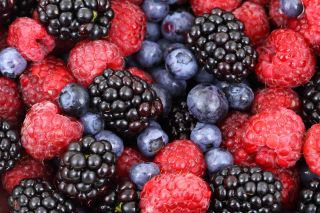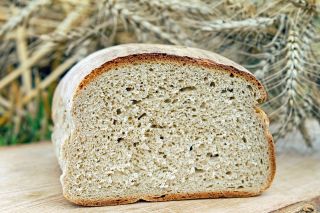We all know someone with unusual or extreme food preferences. Perhaps they pour salt all over everything. Maybe they eat cake for dinner. Or, they might ask for maximum spiciness in all their meals.
Are these simply preferences? Or might they reveal something more about our personality? In a recent article, Spence (2022) reviewed the current research on personality and food preferences, uncovering nine things that our tastes may reveal about our personality. Based on the research, if you like…
- Bitter food, you may be a bitter person. In other words, you may have greater levels of antisocial or psychopathic traits. A study surveyed 953 Americans and found that after controlling for preferences for sweet, sour, and salty tastes, preferences for bitter food predicted antisocial traits, specifically psychopathy, trait aggression, and especially everyday sadism, or experiencing pleasure from other people’s pain in everyday life. In addition, the preference for bitter taste was negatively associated with agreeableness. This preference goes against biological instincts as bitterness often indicates toxicity. The researchers therefore suggest that bitter preferences might be learned. For instance, people who are more psychopathic may enjoy bitter foods due to the unpleasantness that the food causes others. In addition, eating bitter food has been found in past studies to cause hostility.

If you have a sweet tooth, you might be a sweet person.
Source: NoName_13/Pixabay
- Sweet food, you may be a sweetheart. In direct contrast with bitter preferences, preferences for sweetness are associated with greater prosociality. We further stereotype those who have a sweet tooth as kinder. As with bitter food, there is a bidirectional relationship between sweet food and personality such that eating sweet food can cause us to be more agreeable and helpful. The researchers point out that sweetness is universally comforting and rewarding, and that we often call our loved ones sweet nicknames such as “sweetheart,” “sweetie pie,” and “honey bun.”

Eating fruits and vegetables is related to greater openness, extraversion, and conscientiousness.
Source: PublicDomainPictures/Pixabay
- Healthy food, you may be more open, extroverted, or conscientious, or you may be happier. A study of over 1,000 young adults found that eating fruits and vegetables was related to greater openness, extraversion, and to a lesser extent, conscientiousness; but not neuroticism or agreeableness. The researchers suggest that being more intelligent, curious, and social may translate to healthier eating, perhaps because people with these traits are more willing to experiment with different fruits and vegetables. In addition, a separate study found that people who were in a more positive mood preferred healthier foods.
- Spicy food, you may be greater in sensation-seeking and salivary testosterone. There is something thrilling about pushing oneself to the limit. In many cultures, men are more likely to be pushed to such extremes when it comes to spiciness. Accordingly, a laboratory study of 114 men found that those with greater salivary testosterone used more Tabasco on their mashed potatoes.
- Potentially dangerous foods, such as alcohol or shellfish, you may be greater in sensation-seeking. A study of 303 participants found through questionnaires that people who prefer potentially dangerous food/beverages (i.e., food that could make us ill), including alcohol and shellfish, were higher in sensation-seeking.
- Bland food or food less likely to make you sick, you may be lower in sensation-seeking. Unsurprisingly, the same study found that people who prefer bland or “safe” foods (i.e., food that would not make us sick), such as bread and corn, were lower in sensation-seeking.

People who like bland food like bread are lower in sensation-seeking.
Source: Couleur/Pixabay
- Caffeine, you may be greater in sensation-seeking. A laboratory study of 20 adults found that preferences for caffeine predicted greater sensation-seeking, perhaps due to the stimulating effects of caffeine.
- Salty food, you may be more of a novelty-seeker. Unfortunately, this curious finding has not been explained and should be replicated in future studies.
- Fewer foods, you may be more anxious. Picky eating reflects anxious personalities. A study of 318 college students found that more anxious individuals had a greater number of food aversions, perhaps due to neuroticism and the lack of “emotional control.” The most common food aversions in this study (out of a checklist) were brains, buttermilk, and kidneys. Picky eaters may also be supertasters, or people who have more taste buds and thus experience flavors at a greater intensity.

If you have a sweet tooth, you might be a sweet person.
Source: NoName_13/Pixabay

Eating fruits and vegetables is related to greater openness, extraversion, and conscientiousness.
Source: PublicDomainPictures/Pixabay

People who like bland food like bread are lower in sensation-seeking.
Source: Couleur/Pixabay
Overall, these findings indicate the importance of personality in our food preferences, and could lead to effective ways of encouraging people to eat healthier foods. For example, if someone refuses to try new healthy foods, one could specifically target their anxiety or other negative emotions. If someone has a debilitating addiction to caffeine, one might help them to find new sources of excitement. On the other hand, if we wish for someone to be more agreeable, we could give them some cookies.
Yet, there are some gaps in this research. First, studies should examine whether these relationships are consistent across cultures, as culture shapes our food preferences. For instance, in some cultures, spicy foods and bitter foods are a normal part of the diet. Second, most of these studies focus on taste, whereas our preferences for texture may also reflect our personalities. Hopefully, future studies will investigate these questions.